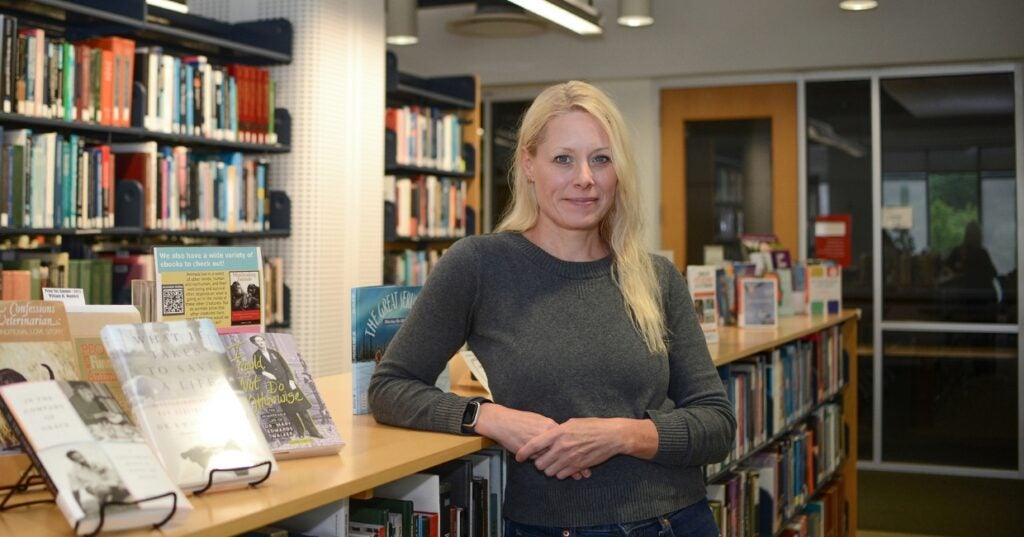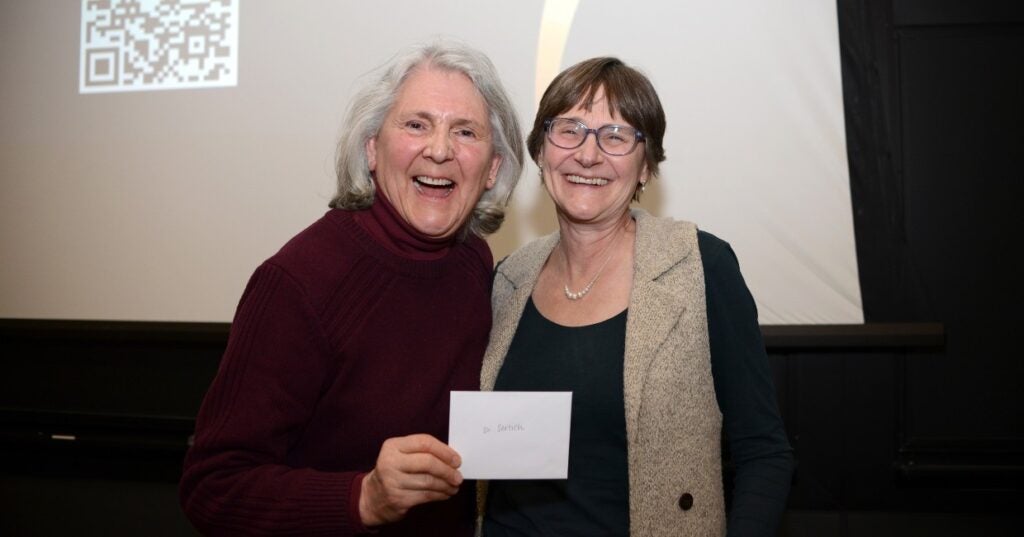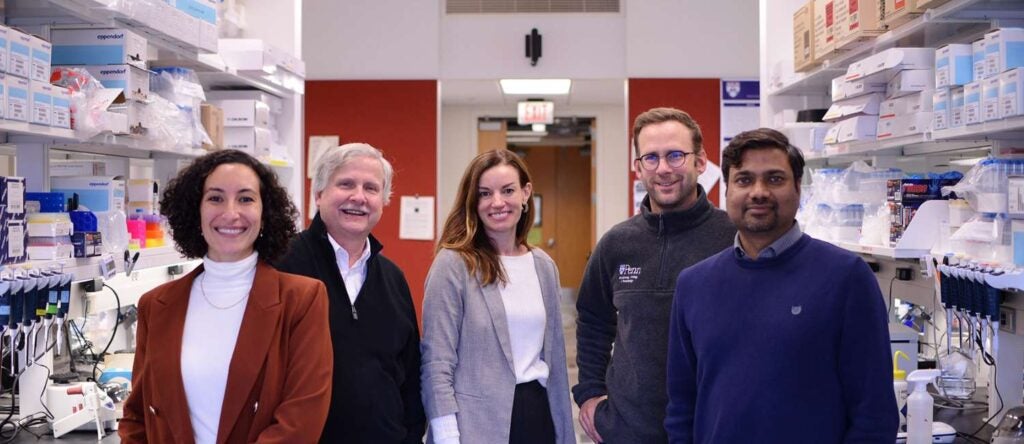Early-Career Scientist from the University of Pennsylvania’s School of Veterinary Medicine Named 2024 Pew Biomedical Scholar
Louise Moncla, PhD, named School’s first Pew Scholar
The Pew Charitable Trusts has named Louise Moncla, PhD, an assistant professor of Pathobiology at the University of Pennsylvania’s School of Veterinary Medicine (Penn Vet), a 2024 Pew Scholar in the Biomedical Sciences.
For 39 years, The Pew Charitable Trusts has encouraged scientific discovery by supporting rising, early-career biomedical scientists who are advancing medical innovation. The 2024 Pew Scholars in the Biomedical Sciences were chosen from 198 applicants nominated by leading researchers and academic institutions throughout the United States. They join a community of more than 1,000 scientists who have received awards from Pew since 1985.
Moncla and her lab study how viruses evolve to infect new species and how factors like ecology, geography, and contact patterns impact virus transmission in human and animal populations.
Moncla will receive four years of funding to examine highly pathogenic H5Nx avian influenza viruses. Avian influenza viruses naturally circulate in wild, migratory birds, but can become endemic in domestic bird populations, where they facilitate sporadic human infections. When humans are infected with these viruses, case fatality rates can be as high as 60%.
“I am immensely grateful and deeply honored to be named a Pew Scholar, as this will allow me and my lab to further investigate avian influenza, and more broadly, the complex mechanisms of zoonotic pathogen transmission; their reservoirs, and the ecological and evolutionary factors that facilitate their emergence and spread,” said Moncla. “It is my hope that the funding through the Pew Scholars Program will enable us to discover the basic underpinnings of avian influenza zoonosis that will one day allow us to expand disease surveillance, improve our predictive models, and inform strategies for disease prevention and control.”
“The Pew Charitable Trusts’s recognition of Dr. Moncla’s work is a testament to her exceptional contributions and dedication to advancing our understanding of diseases that bridge the animal-human interface,” said Igor Brodsky, PhD, Robert R. Marshak Professor and chair of the Department of Pathobiology. “This honor both acknowledges Dr. Moncla’s achievements and supports the promise of her future discoveries that will shape the landscape of disease prevention and public health. Her commitment to scientific scholarship and public health advocacy is an inspiration to not only her colleagues, but to the next generation of biomedical researchers.”
“Pew believes that supporting promising early-career researchers is key to scientific innovation, and for nearly 40 years our scholars have helped change the world; creating lifesaving therapies and responding to emerging health crises around the globe,” said Donna Frisby-Greenwood, Pew’s senior vice president for Philadelphia and scientific advancement. “This class of Pew scholars is no different. We are proud to support these scientists and look forward to watching where their research takes them.”
Read more about Dr. Moncla and her work.
Related News

The University of Pennsylvania School of Veterinary Medicine Names Amy Durham, Associate Dean for Education
Andrew M. Hoffman, DVM, DVSc, DACVIM, Gilbert S. Kahn Dean of the University of Pennsylvania’s (Penn) School of Veterinary Medicine (Penn Vet) has announced the appointment of Amy Durham, MS,…

SAVMA Student Teaching Awards 2025
On Friday, April 11, the Penn Vet community gathered to honor students, faculty, and hospital staff during the annual SAVMA Student Teaching Awards. Recipients are selected by the student body…

Uncovering the role of skin microbiome and immune response in cutaneous leishmaniasis (link is external)
Two new studies led by Phillip Scott of the School of Veterinary Medicine and Elizabeth Grice of the Perelman School of Medicine demonstrate how bacteria found in leishmaniasis skin lesions…
About Penn Vet
Ranked among the top ten veterinary schools worldwide, the University of Pennsylvania School of Veterinary Medicine (Penn Vet) is a global leader in veterinary education, research, and clinical care. Founded in 1884, Penn Vet is the first veterinary school developed in association with a medical school. The school is a proud member of the One Health initiative, linking human, animal, and environmental health.
Penn Vet serves a diverse population of animals at its two campuses, which include extensive diagnostic and research laboratories. Ryan Hospital in Philadelphia provides care for dogs, cats, and other domestic/companion animals, handling more than 34,600 patient visits a year. New Bolton Center, Penn Vet’s large-animal hospital on nearly 700 acres in rural Kennett Square, PA, cares for horses and livestock/farm animals. The hospital handles more than 6,200 patient visits a year, while our Field Services have gone out on more than 5,500 farm service calls, treating some 18,700 patients at local farms. In addition, New Bolton Center’s campus includes a swine center, working dairy, and poultry unit that provide valuable research for the agriculture industry.

